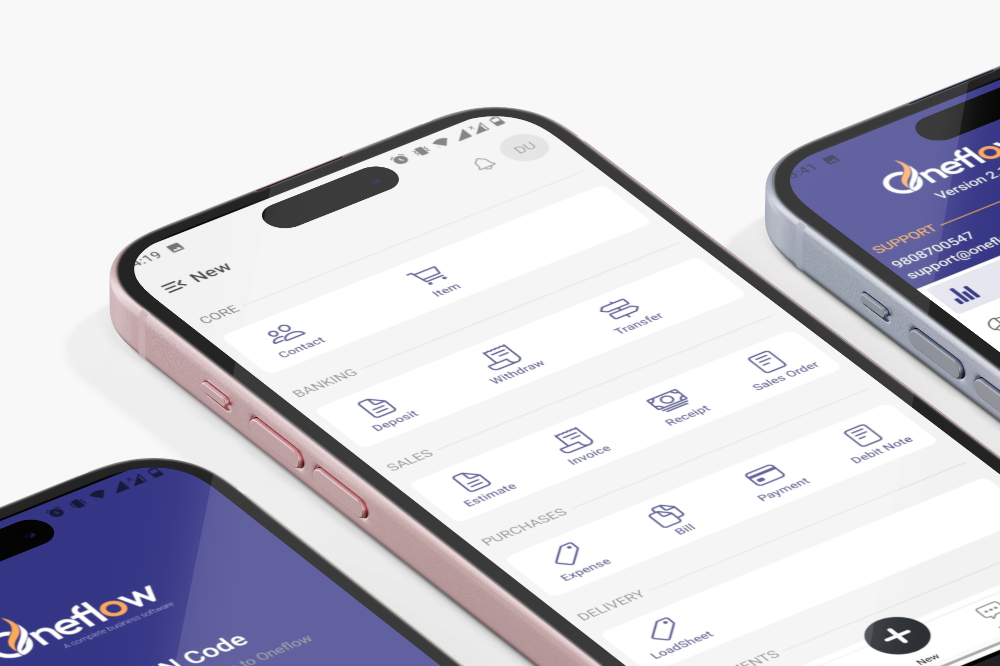Artificial Intelligence (AI) is transforming the way businesses operate, and small businesses are no exception. With tools like chatbots, automated processes, and advanced data analytics, AI can significantly enhance efficiency, helping businesses scale faster while saving time and resources.
In this post, we’ll explore how OneFlow, your trusted accounting software, can help you leverage AI to streamline financial processes and keep your business running smoothly.
Scaling Your Business with AI: Accounting Made Easy
In today’s fast-paced business environment, staying ahead of the competition is key. OneFlow’s AI-powered accounting features make it easier than ever to manage your finances, reduce human errors, and automate time-consuming tasks. From generating accurate reports to predicting financial trends, OneFlow is designed to help your business grow while taking the hassle out of accounting.
AI for Accounting: Smarter Automation
AI can make everyday accounting tasks quicker and more accurate. Here’s how OneFlow’s advanced AI can help:
- Automated Invoicing and Payments: OneFlow automatically generates invoices based on your business’s billing cycle. AI ensures that these invoices are accurate and sent on time, reducing delays and human errors. Payments are tracked in real-time, and AI sends automated reminders for overdue payments, improving cash flow management.
- Smart Financial Reporting: Gone are the days of manually crunching numbers. With AI-powered financial reports, OneFlow provides insightful data about your business’s performance. AI analyzes transaction data to produce detailed income statements, balance sheets, and other key financial documents without you lifting a finger.
- Expense Management: OneFlow’s AI helps identify patterns in your expenses, making it easier to optimize spending. The system can suggest ways to reduce costs, which is crucial for small businesses trying to maximize profitability.
- Tax Compliance: Keeping up with tax regulations can be a challenge, but OneFlow’s AI helps ensure that your taxes are filed correctly. It automatically tracks tax deadlines and prepares the necessary documentation, making tax season less stressful.
Customer Service and AI: Making Communication Seamless
OneFlow doesn’t just stop at accounting. Its AI-powered tools extend to customer service as well. Using advanced chatbots and virtual assistants, businesses can handle customer inquiries around the clock, ensuring customers receive timely and accurate responses without additional manpower.
AI Risks to Consider
While AI offers significant benefits, it’s important to proceed with caution. AI is constantly evolving, and small businesses should ensure they have the proper safeguards in place. OneFlow understands this and is committed to minimizing risks such as errors in financial data, bias, or data security issues. Rest assured, OneFlow is built with robust security and error-checking mechanisms.
Embrace the Future with OneFlow
AI is revolutionizing the way small businesses approach accounting, and OneFlow is at the forefront of this transformation. By automating key financial processes, providing predictive insights, and improving customer service, OneFlow helps you stay competitive in a rapidly changing business landscape.
Visit OneFlowERP.com today to learn more about how OneFlow’s accounting software can transform your small business operations and help you take advantage of AI-powered tools!
Let us handle the numbers, while you focus on growing your business.
— The OneFlow Team



